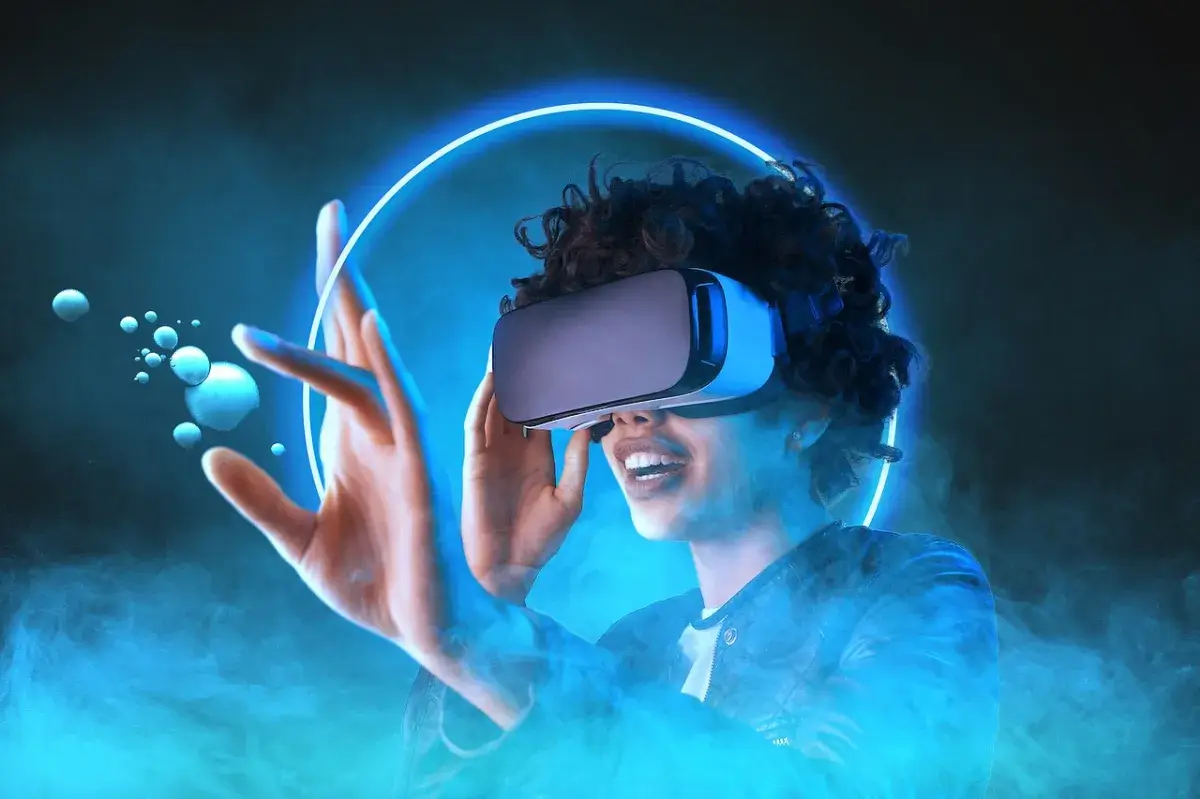The metaverse is rapidly transforming marketing and advertising, and by 2025, this shift is expected to be even more profound. The metaverse, a collective virtual shared space created by the convergence of physical and digital reality, offers immersive experiences that traditional advertising can't match. The global metaverse economy is projected to exceed $600 billion by 2025, with brands already investing heavily to establish their presence and connect with digital-first consumers.
Key Strategies for Metaverse Marketing in 2025:
- Immersive Brand Experiences: In the metaverse, customers crave experiences, not just advertisements. Brands are creating virtual showrooms, hosting interactive events, and even sponsoring virtual concerts and festivals. For example, fashion brands like Gucci have launched virtual try-on features and exclusive virtual collections. Nike developed Nikeland on Roblox, a brand experience that combines sport, gaming, and virtual community.
- Virtual Real Estate: Virtual real estate has become a hot commodity. Businesses establish a strong presence in metaverse platforms, creating branded environments where customers can engage with their products and services in new ways.
- Gamification: Gamification is effective for engaging users. Brands integrate gaming mechanics like rewards, quests, and leaderboards to keep customers engaged. Sustainability-focused brands launch virtual games where users can plant digital trees; for every tree planted, a real one is funded through a CSR initiative.
- NFTs and Digital Collectibles: Non-fungible tokens (NFTs) are a cornerstone of the metaverse economy. Brands offer limited-edition virtual goods, artworks, or experiences to fans. Coca-Cola's first NFT auction in 2021 garnered over $575,000 in bids, with proceeds going to charity. Functional NFTs can also serve as loyalty tokens.
- Social AR Filters and Lenses: Social media AR filters and lenses on platforms like Snapchat, Instagram, Facebook, and TikTok enable users to overlay digital graphics onto the real world through their smartphone cameras, combining entertainment with promotion and encouraging users to share brand content.
- AI-Driven Personalization: AI enables hyper-targeted campaigns tailored to individual preferences, behaviors, and real-time data. Marketers predict customer needs and create personalized and relevant experiences across all touchpoints. AI-powered chatbots will also become more sophisticated, offering seamless shopping experiences.
- Conversational Commerce: Conversational commerce through platforms like WhatsApp and Messenger will become a standard part of advertising. Automated chatbots powered by AI will facilitate personalized customer interactions, answer questions, provide product recommendations, and even complete sales within messaging environments.
Benefits of Metaverse Marketing:
- Enhanced Customer Engagement: Virtual spaces create interactive experiences that go beyond static ads or traditional campaigns, evoking stronger emotional connections and fostering deeper brand loyalty.
- Integrated and Non-Intrusive Advertising: Brands can be integrated into the metaverse experience through sponsored spaces, avatars, virtual items, or interactive events, making advertising feel less interruptive.
- Virtual Commerce and Expanded eCommerce: E-commerce in the metaverse transcends the physical, making it possible to test, customize, and buy digital or hybrid products.
- First-Mover Advantage: Early adopters can carve out space and build loyalty before the environment becomes oversaturated.
Challenges of Metaverse Marketing:
- Technical Barriers: Not all consumers have access to the hardware or connectivity required to fully participate in the metaverse.
- Fragmentation and Platform Uncertainty: The metaverse comprises a patchwork of ecosystems, each with its own rules, user bases, and technical requirements, making campaign planning complex.
- Data Security and User Privacy: Balancing personalization with user privacy is critical for maintaining trust. The metaverse collects large volumes of data, raising significant security risks.
- Ethical and Cultural Sensitivities: The immersive nature of the metaverse raises concerns around privacy, representation, and psychological impact, requiring brands to be culturally aware and ethically responsible.
- Content Moderation: Ensuring virtual environments are safe and free from inappropriate content is challenging, given the open and decentralized nature of the metaverse.
- Measuring Success: The lack of unified analytics and the novelty of the experience make ROI tracking difficult.
Conclusion:
Marketing and advertising in the metaverse represent a transformative shift, offering unprecedented opportunities for brands to engage with consumers in immersive and interactive ways. By 2025, having a well-defined metaverse strategy will be essential for businesses looking to stay competitive. While challenges exist, prioritizing immersive experiences, leveraging new technologies like NFTs, and building authentic relationships in virtual spaces will position brands at the forefront of this digital revolution. The key to success will be a willingness to experiment, adapt, and prioritize consumer privacy and trust.

















